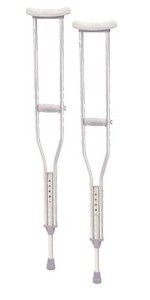Distraction. That which divides the attention, diverts or draws away the mind; prevents concentration.
Jerry Lout! What are you looking at out there? You come right up here.
Elementary school.
I limp through my life distracted. Not all the time.
But more of the time than desired. Ask Ann, my wife.
Occasionally my distractions serve a handy purpose. Even therapeutic. A quiet brook in a peaceful setting brings respite to a stressful day. Still, helpful distractions seem rare.
My inattention might have pinned a teenage chum under a tractor tire. I absent-mindedly left a fence-gate lying in my horse’s pathway. Thankfully we cheated disaster. Still, distraction took me there.
You come right up here, Jerry!
My nine-year-old daydreaming mind had transported me outside our Fourth Grade classroom. The playground scene beyond the window had won me over. I surveyed a world beyond the smell of chalk dust and the warble of Mrs. B’s voice.
Whether the punishment fit the crime, Mrs. B’s hard paddle stung. And I quivered – from embarrassment as much as pain. My classmates hadn’t often seen me blush or shed tears. A ringside seat today for both – at the front of the room.
As with most kids, distractions peppered my growing-up years. Sidelined once by teenage infatuation I entered a covert alliance with a girl. And nearly train-wrecked my bond with my parents.
Motor vehicles and distractions don’t do well together.
‘Reckon we ought to move his motor-bike outa the street?
My head throbbed. I lay face-down. Struggled to make sense of the man’s folksy question.
I had been trying out the used motorcycle dad recently helped me buy.
Turning onto Sixth Street from Wood Drive I concentrated on my lame foot.
The bike’s gears didn’t respond well to the efforts of my left heel. Normally the gear is shifted by the shoe toe. But polio left me with no upward lift. So I improvised. I sent my foot over and beyond the gear and lifted the lever with the back of my heel. The tactic hampered the shift. Brought Distraction.
I looked up and a car crossed before me from a side road. It was a safe distance ahead but its image spooked me. I seized the front brake. It locked and I tumbled headlong. I wore no helmet.
My white and black Honda lay on its side. I was transported by strangers and lain face-down in a grassy area at the street’s edge. After some moments I stirred. I lifted my head slightly and surveyed several pairs of shoes. The shoes faced me in a rough semicircle. It was then I heard the man’s matter-of-fact voice.
Gradually someone helped me up.
Thank you. I could at least speak.
Another kind person steered me to a clinic just steps away.
The doctor studied a place on my forehead.
That’s a real goose egg you have, young man.
He shined a light in each eye, shared a cautionary remark and sent me on my way. Days afterward I pondered some questions. Significant ones for me.
What Good Samaritan saw me to the clinic?
Who covered the doctor’s visit (did anyone)?
Who retrieved my bike?
What mercy-givers hauled me out of harm’s way and onto the grass?
What unseen force, presence, or hand kept the goose egg from cracking?
Thanksgiving wells up. Not to impersonal lucky stars.
Rather to one who – in faithfulness – attends to the inattentive. Delivers the distracted. And counsels. With wisdom.
Next time I rode, the helmet went on. And I traded distraction for vigilance. For awhile.
*Medical Interlude update. The hospital released my dear wife three days ago. She mends at home. Is better each day. Thank you, readers. Who’ve expressed care, offered prayers, well-wishes. We limp forward – my wife and me – in the company of really special people. Grateful.
©2015 Jerry Lout


